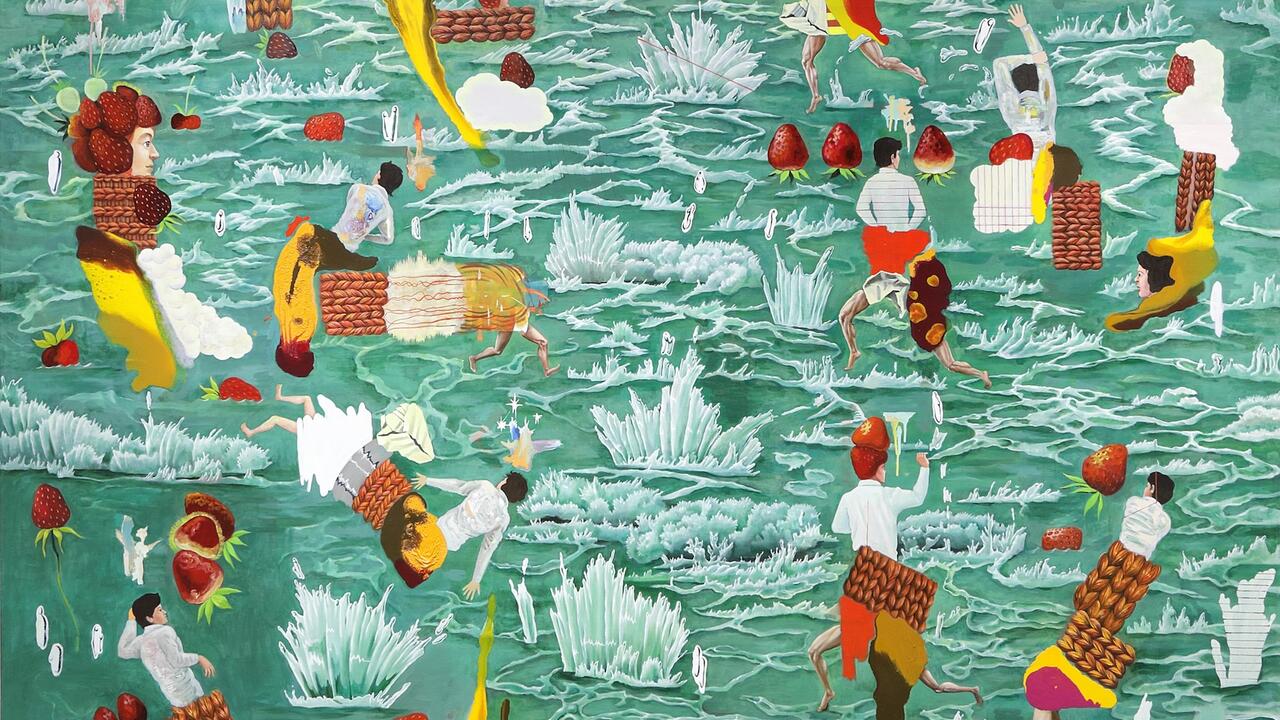How Kiri Dalena Found Her Voice as an Activist
The artist looks back on her years of activism and defiance against oppressive regimes
The artist looks back on her years of activism and defiance against oppressive regimes

This piece appears in the columns section of frieze 248, ‘Disobedience’
I remember the farmers, environmentalists, unionists, lawyers and human-rights defenders across the Philippines who were killed during my days as a full-time activist. I remember not only their faces and names, the locations and dates of their deaths, but the suspected state perpetrators and their battalion numbers, their commanding officers.
It was always in April when the attacks escalated and I would wonder: Was there something in the heat of summer that emboldened the murderous? Was it easier to kill when the season was dry, to pull the trigger when there was no rain?

But it is unfair to blame the weather. Perhaps the reason was more pragmatic. Were they operating within some fiscal cycle? Was there a calendar for submitting invoices for this sort of labour? Maybe they would be ineligible for compensation beyond May, thus the mad rush to meet their quotas.
Back then, I was rail thin with arms darkened by the sun. With a camera, I could be found on human-rights rescue missions and picket lines, in protest marches and at funerals. In my family, I was the daughter that missed holidays and celebrations. When I did turn up, drunk uncles would bellow: ‘Which mountain did you descend from this time?’
I was once asked to speak at a national protest in Mendiola. Wearing purple, I climbed the makeshift stage and planted myself front and centre. Fist held high, I began with a fiery chant: ‘Forwards Woman, Fighter, Activist!’ But, before more words started spilling from my mouth, I took in the sea of protestors below me: young and old, smooth-skinned and wizened, faces glistening with sweat and burnished by the midday sun. Time slowed down and I faltered; my voice, though amplified, trembled.

I think of a dear revolutionary, a mentor during my early years of activism, in whose eyes I was not just an artist but had the makings of a political cadre. When I eventually confessed that I could not find fulfilment in multisectoral organizing, she could not empathize. She saw only arrogance. I was recommended for disciplinary remoulding in the countryside for an indefinite period. I wept, but I also agreed that I needed to ‘tear away the billion layers of my selfishness’. Ultimately, though, I did not become that cadre.
Looking back, I could have transformed into something entirely different from what I am now. I would have become someone else, somewhere else. There, the execution of my protest would be sharper, the trajectory of my disobedience lethal and precise.
I was recently invited to a national cultural event honouring Filipinos in the arts. Irene Marcos-Araneta, daughter of the late dictator and representing her brother, President Ferdinand ‘Bongbong’ Marcos Jr., opened the programme. After painting a glorious picture of Philippine arts and culture during the rule of her parents, she promised the audience continuity under her brother’s administration. Our small party fidgeted and squirmed. I contemplated a walkout with my six-year-old son.

But then a familiar name was called. The journalist and poet Jose F. Lacaba, now in his 80s, who survived severe torture as a political prisoner during the Marcos regime. Assisted by ushers, he slowly made it up to the well-lit stage. Honourees had been asked to submit the text of their acceptance speech days earlier but, once at the podium, Lacaba proceeded to read a different speech.
Time, once again, stood still. Reporting the event for the independent news platform VERA Files, Elizabeth Lolarga wrote: ‘What Lacaba has done, now the talk of the town, is to shake the perfumed set in the audience out of its comfortable complacency. His speech was the night’s golpe de gulat [sudden blow], in a manner of speaking, that for a second shushed the audience in awestruck silence before a sector broke out cheering loudly for the man. In our eyes, he suddenly grew into a statesman who bore the truth in a holster.’

As the poet descended from the stage, I was on my feet, chanting: ‘Artist of the People, Now is the Time to Be Defiant!’ My voice joined the roaring chorus. It did not falter, nor tremble.
The unrepentant representatives of corrupt power, the targets of our dissent, were right there, seated near the front row. No bones were broken, but I hope that we somehow hurt them a little.
This article first appeared in frieze issue 248 with the headline ‘Speaking Out’
‘Kiri Dalena’ is on view at Neuer Berliner Kunstverein (n.b.k), Berlin, until 2 February
Main image: Kiri Dalena and Ben Brix, Walang Masulingan (detail), 2024, video still. Courtesy: © the artists
























